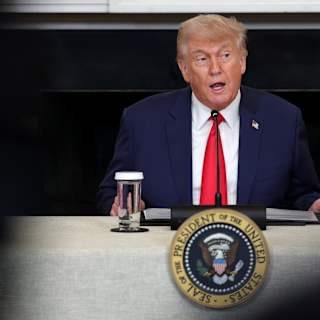- Saturday's Cliffhanger Vote
- Bill's Fiscal Impact Grows
- Clean Energy Provisions Tightened
The Congressional Budget Office announced Sunday that the Senate version of President Donald Trump's sweeping tax and spending package would add $3.3 trillion to the nation's debt over the next decade, as Republican lawmakers prepare for final passage following a dramatic late-night procedural vote.
The nonpartisan analysis comes just hours after Senate Republicans narrowly advanced the legislation in a 51-49 vote that stretched past midnight Saturday, with Vice President JD Vance standing by to break any potential tie. The updated fiscal projection reflects the Senate's revised 940-page bill, which underwent last-minute changes that increased its projected cost to $4.45 trillion, up more than $200 billion from an earlier draft.

Two Republicans broke ranks to oppose the procedural motion - Sens. Thom Tillis of North Carolina and Rand Paul of Kentucky - joining all 47 Democrats in opposition1. Tillis cited concerns over Medicaid cuts that could leave constituents without healthcare, while facing threats from Trump to campaign against him1.
The vote came after more than three hours of delays, with holdout senators huddling for negotiations off the Senate floor1. "Tonight we saw a GREAT VICTORY in the Senate," Trump posted on social media afterward1.
The Senate's version would make permanent many tax breaks from Trump's first term that expire this year, add new breaks including eliminating taxes on tips, and allocate $350 billion for national security including mass deportation efforts1. However, the legislation would also cut spending on Medicaid, food stamps and green energy programs1.
The CBO analysis found the bill would increase the number of uninsured Americans by 11.8 million by 20341. Top income earners would receive about $12,000 in tax cuts while the poorest Americans would face $1,600 in additional costs, according to the budget office1.
The final Senate text includes sharper restrictions on renewable energy tax credits after Trump pushed Majority Leader John Thune to align more closely with the House version1. Solar and wind projects must now be placed in service by the end of 2027 to qualify for clean electricity credits, a more restrictive timeline than earlier proposals1.
"We are literally going to have not enough electricity because Trump is killing solar," Sen. Brian Schatz, D-Hawaii, wrote on social media Saturday1.
The bill now heads to extended floor debate and amendment votes before potentially returning to the House for final approval ahead of Trump's July 4 deadline2.



